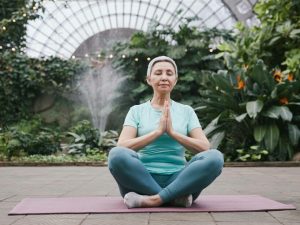
In the world we live in today, there is a social construct built around the emotions of men. My name is Akashinga Maisiri and the pain I feel bypasses all logic and reason. My name means brave one in Shona; the language of my fathers yet I am the captive of my inhabited emotions. For many years, I had avoided the pain and suffering of my life to ensure my survival. Repressing my emotions seemed to be my perfect coping mechanism. I became a natural stoic with a pretty high pain threshold, yet I was struggling to make sense of the silent screams of anguish. My thoughts were more chaotic than poetry or soul; a whirling, swirling myriad of feelings and emotions that was hotter than a volcano and deeper than the oceans.
They say a bad parent was a traumatised child, caught in the fires of their own suffering, their thoughts more hurricane than poetry or soul. I guess that’s right. In that exists the arduous path that I was about to journey through, never realizing the bigger picture until I gazed at the purity in my newborn’s eyes. I didn’t want my childhood traumas to show up in my own parenting. There I was, holding my little girl in a harness, her squishy baby belly pressing against my chest while she grew heavy with sleep. I was entrapped in a beautiful protective web of emotions to give, nurture and guard her. It was propelling me to be the best version of myself, to rewind, to cast away the cynicism of the poisons that I had buried alive in my past.
 As I stepped into the shade of our tree-lined street, it hit me: an incredibly warm, melty glow of euphoria. It began in my heart and rushed through every appendage, leaving me giddy yet deeply at peace — and on the verge of tears. Everything seemed to slow down. I almost stopped to catch my breath.
As I stepped into the shade of our tree-lined street, it hit me: an incredibly warm, melty glow of euphoria. It began in my heart and rushed through every appendage, leaving me giddy yet deeply at peace — and on the verge of tears. Everything seemed to slow down. I almost stopped to catch my breath.
It was powerful, and it was weird. Yet at the time, I couldn’t write it off as just a nice moment. It was a feeling I wanted to hold on to for the rest of my life. I internalized it and consciously expressed what I felt with a smile. My wife and I had started a family, I was a father now, and it felt amazing.
It opened my eyes to understand something that I was learning to know to be true. There is a misconstrued meaning to masculinity. Most men in society fall into this endless circle, leading to high depression and suicide rates amongst men. Learning to show our emotions and express them can be difficult in a society that doesn’t think you should. At that moment, I let my baby girl’s shimmering eyes lead me. It became my compass, the needle spinning to help me find wholeness, her true north and mine.
I began to push through my life experiences; the murders of my three sisters, growing up with a narcissist father, and my mother’s mental illness. As a five-year-old, I was already indoctrinated to regard exploitation and disregard love. More than ever, I decided to push past every societal narrative and family myth that had dictated that emotions are wrong, shameful, or a sign of weakness.
Act like a man!
These words were screamed at me. I was only a child. How could I act like a man, or were they mistaken? Whenever I pondered on this; I broke out in cold sweat, my heart pounding in my ears and legs trembling as I tried so hard to fill the boots that were obviously too big for my feet. I was never allowed to see my own fear, for it was ever a disadvantage in the place where I was raised. To cry was to be beaten and scolded. If I cried I’d be “given something to cry about.” The act of crying for my own pain was literally beaten out of me. Suppressed completely. I was only allowed to show emotions that were associated with dominance or strength; those viewed as masculine. Whenever I tried to outwardly express contrary emotions, those words hit again: “Act like a man! Real men don’t cry”.
So, I began acting like a man
I became an apathetic thespian in this stage of life without an audience but myself. A strong and stoic man without a tear, well-composed, taking full responsibility for my actions and those of others. A man that masks his emotions and exhibits nothing but strength and agility, a man according to social constructs, and a man that fits the narrative: “Men don’t cry”.
Was I really a real man?
I know, in the serenity of solitude, when I am in my own company, and when the only heart beating in my house belonged to me, I am constantly tormented by my inner- demons. Sets changing, giving way for a new dialogue with myself. I’m sprawled by the side of my bed, head buried in the sheets soaked with the tears I hide from society. So, I question: if men don’t cry, am I a real man?
How could I be?
The ebbs and flows of all my bottled-up emotions were constantly weighing down on me. When the frustration builds and I think I might explode – I take a deep breath. I turn on the music, speakers on full blast, shower running, but I’m not in it. Masking the sound of my wails; I shout and scream, have a tantrum and beat my hands on the ground like a toddler. I vent, letting it all out in a full-force emotional hurricane. I am almost engulfed in its vortex and, with each jibe, I feel the winds clipping my core. But as tempting as it is to remain a prisoner, to maintain the stereotypical masculine image of toughness, I knew I had to fight my way through every barrier.
Men don’t cry
Then I asked: Is there an existing man who has never shed a tear, a man who never wept? Even Jesus wept. Show me a man born without emotions. Nobody could. So, I changed the narrative. It is hypocritical in every sense to let a man laugh but not cry. Real men do cry. Part of what makes us human is our ability to feel our feelings and process our emotions. When we’re happy, we want to smile and show excitement. When we’re angry, our body tenses up and our voice level rises. When we’re sad, we naturally want to cry.


 “It is not just another night; in a few hours, the sun will be exactly above the Equator and day and night will be of equal length. It’s another equinox Tipkamol!” Ratana announced excitedly.
“It is not just another night; in a few hours, the sun will be exactly above the Equator and day and night will be of equal length. It’s another equinox Tipkamol!” Ratana announced excitedly. “On the Autumn Equinox you may want to honour all that you have in your life and shift your consciousness from one of lack to one of prosperity and gratitude in some ways through a small ritual or ceremony,” she advised.
“On the Autumn Equinox you may want to honour all that you have in your life and shift your consciousness from one of lack to one of prosperity and gratitude in some ways through a small ritual or ceremony,” she advised.

 Gosh! This is ridiculous. Ok, as a sociologist who has been a bank representative for a few years now and I know you’re a firm believer in Freud’s psychodynamic theories. Freud’s theory of dreams suggests that dreams represent unconscious desires, thoughts, wish fulfilment, and motivations. Even you should know that.
Gosh! This is ridiculous. Ok, as a sociologist who has been a bank representative for a few years now and I know you’re a firm believer in Freud’s psychodynamic theories. Freud’s theory of dreams suggests that dreams represent unconscious desires, thoughts, wish fulfilment, and motivations. Even you should know that.